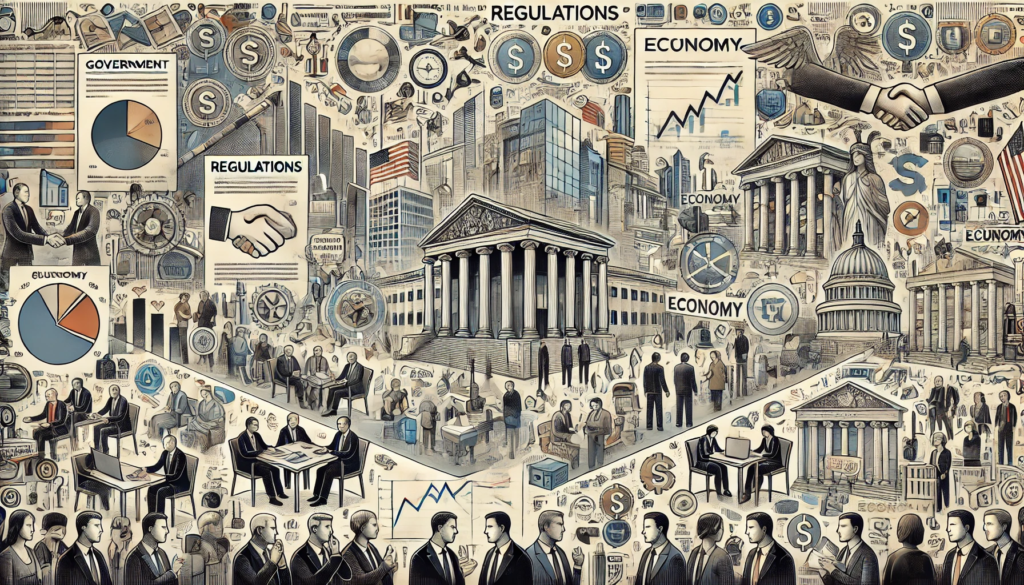Government regulations play a crucial role in shaping the economy of a country. These regulations are set in place to create a level playing field, ensure fair competition, protect consumers, and promote economic stability. However, the impact of government regulations on the economy can be complex and varied, with both positive and negative implications.

Effects of Government Regulations on the Economy
Government regulations can have a significant impact on the economy in various ways:
1. Economic Stability
Government regulations are designed to prevent market failures and maintain economic stability. Regulations on financial institutions, for example, aim to prevent excessive risk-taking and speculative behavior that can lead to financial crises.
2. Consumer Protection
Regulations also play a critical role in protecting consumers from fraud, deceptive practices, and unsafe products. By setting standards for product safety, advertising practices, and customer rights, regulations help build trust in the market.
3. Environmental Protection
Government regulations on industries such as manufacturing, energy, and transportation help protect the environment by setting limits on pollution, carbon emissions, and waste disposal. These regulations promote sustainable practices and reduce negative externalities.
4. Incentives for Innovation
Regulations can incentivize innovation by setting standards for new technologies and products. For example, regulations that promote renewable energy sources can drive innovation in the clean energy sector and lead to economic growth.
5. Market Competition
Regulations aim to promote fair competition and prevent monopolistic practices that can harm consumers and stifle innovation. Antitrust laws, for example, help maintain a competitive market environment by preventing companies from engaging in anti-competitive behavior.
Key Takeaways
Here are the key points to remember about the impact of government regulations on the economy:
- Economic stability is maintained through regulations on financial institutions.
- Consumer protection is ensured through regulations on product safety and advertising practices.
- Environmental protection regulations help reduce pollution and promote sustainable practices.
- Regulations can incentivize innovation by setting standards for new technologies.
- Market competition is maintained through regulations that prevent monopolistic practices.
FAQs
1. How do government regulations affect businesses?
Government regulations can impact businesses by increasing compliance costs, limiting certain business practices, or creating barriers to entry for new competitors. However, regulations can also provide benefits such as consumer trust and a level playing field.
2. Are government regulations always beneficial for the economy?
While regulations are necessary to ensure market integrity and protect citizens, excessive or poorly designed regulations can impede economic growth and innovation. Balancing the need for regulation with the potential negative effects is essential for a healthy economy.
3. How can businesses navigate through complex government regulations?
Businesses can stay compliant with regulations by investing in legal counsel, implementing robust compliance programs, and staying informed about regulatory changes. Collaboration with industry associations and government agencies can also help businesses navigate regulatory challenges.
4. What role do government regulations play in international trade?
Government regulations impact international trade by setting standards for imports and exports, customs duties, and trade agreements. Regulations can both facilitate and hinder international trade depending on their nature and implementation.
5. How can individuals advocate for better government regulations?
Individuals can advocate for better government regulations by engaging with policymakers, participating in public consultations, and supporting organizations that promote transparency and accountability in regulatory processes. By voicing their concerns and suggestions, citizens can play a role in shaping effective regulations.
Overall, government regulations have a profound impact on the economy, affecting businesses, consumers, and the environment. By striking a balance between regulation and innovation, countries can create a regulatory framework that promotes economic growth, protects citizens, and ensures a sustainable future.


